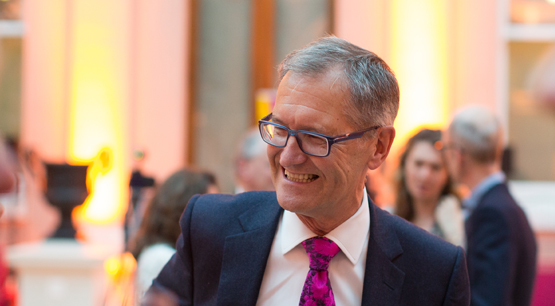Council Activities
News and notes from the University of Warwick’s Council
As Chair of the University of Warwick’s Council I have been concerned for some time that the work of Council is not sufficiently visible to the whole of the university community. This has certainly been the feedback from my student and academic colleagues. What we thought would therefore be useful would be to write a series of updates communicating directly those aspects of Council’s work likely to be of broad interest. This is the first such note, and if it proves helpful, I will be inviting other members of Council to offer their perspectives in the future.
Perhaps I should start by just describing Council itself. Council - the University’s governing body - is made up of 9 members of the university’s staff, two student representatives (the President of the Students’ Union and one other sabbatical officer) and up to fourteen independent, or ‘lay’, members. The lay members, who are all unpaid, are drawn from a wide variety of backgrounds covering the public, private and charitable sectors. I think that it is fair to claim that it is a diverse body in every sense of the word, able to call on a wide variety of experience and views.
At yesterday’s meeting we welcomed two new members, Kamini Gadhok and Neil Sachdev. Kamini is Chief Executive of the Royal College of Speech and Language Therapists, and received an MBE in June 2009 for services to the Allied Health Professions. In 1997, Kamini was seconded to the Department of Health to set up the Race Equality Unit. Neil is Chairman of Market Tech Limited (Camden Market), Chairman of Martins Properties (Chelsea Limited) and is a Non-executive Director of Medico-Dental Holdings Limited and Intu Properties plc. He brings a wealth of experience in the built environment, as well as expertise in climate change.
You can find out more about all our Council members here
Yesterday’s meeting, the first under our new Vice-Chancellor, was largely concerned with taking a broad look at the year ahead and the challenges we have to face. However, it also received an important report from its Remuneration Committee
The latter, which I also chair, is made up entirely of independent members when considering the salary of the Vice-Chancellor.
Firstly, the Committee reported that the University’s new Vice-Chancellor had requested that the University change its normal practice of reporting the decisions of the Remuneration Committee on the salary of the Vice-Chancellor through publication of the next set of University statutory accounts, opting instead to publish immediately once they have been reported to Council.
The Remuneration Committee and Council fully agreed with this proposal. We can therefore now publish immediately the details of the remuneration of the incoming Vice-Chancellor. While the recruitment process for the post was in progress, the Committee carefully considered market data on UK universities and decided that the salary to be offered to the next Vice-Chancellor would be £280,000. This figure was the median of that paid to existing Russell Group comparators, albeit at the low end of many of our international competitors. Accordingly £280,000 was the figure offered to Professor Stuart Croft on his appointment and this was accepted.
Secondly the Remuneration Committee reported its final decisions on the remuneration of Warwick’s outgoing Vice-Chancellor, Professor Sir Nigel Thrift
Sir Nigel has been one of the University of Warwick’s longest-serving and most successful Vice-Chancellors, and his performance was considered and reflected in two decisions. The first looked at the period from August 2013 to the end of January 2016. During this time the Vice-Chancellor’s remuneration had not been increased nor had any performance-related award been given: the Committee having decided in 2013 that it would be more appropriate to review the final part of Sir Nigel’s service over a two and a half year period. Reviewing this final period, the Committee decided to award Sir Nigel Thrift a performance award of £42,000 – equivalent to a 5% pay increase for each completed year, which was in line with what had been awarded annually to the University’s highest performing professors and senior administrative staff over the same period.
This Committee then separately considered the whole of Sir Nigel’s performance over his nine and a half years as Vice-Chancellor. Provision for doing this was part of his original contract of employment. In doing so, it looked at every aspect of the Vice-Chancellor’s multi-faceted role.
During this time Warwick has not only become firmly established as one of the top-ranked Universities in the UK, it has also built up a global reputation. The ground-breaking relationships that it has forged in New York, California and Australia have placed the University in an excellent position to extend its global presence still further. Professor Thrift has played a key role in all these developments. Under his leadership, the University has also made significant progress against its long-term institutional objectives in areas such as teaching, research, new infrastructure, income available for new investment, and the increase in philanthropic support for Warwick.
In the light of these achievements the Remuneration Committee, in consultation also with the Vice Pro-Chancellor and the Pro-Chancellor Elect, agreed a separate award of £50,000 in respect of the Vice-Chancellor’s whole time at Warwick.
Subsequent to these discussions, the Committee noted with appreciation, Sir Nigel Thrift’s generous decision in making a life-time pledge to donate at least £50,000 to the University of Warwick for the benefit of global student volunteering.
I very much hope you find this open, less formal and more immediate form of communication from the Council useful.
George
Sir George Cox
Pro-Chancellor & Chair of Council

Sir George Cox, Pro-Chancellor and Chair of Council
